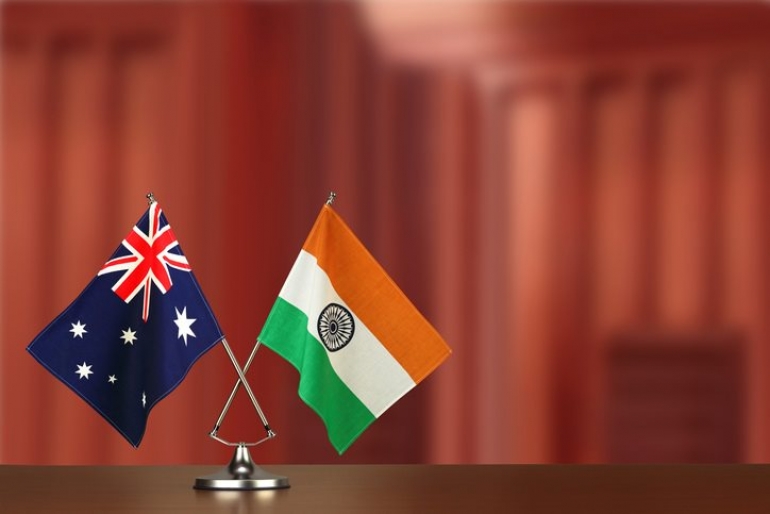Wed 24 November 2021
UNSW Law’s Herbert Smith Freehills China International Business and Economic Law (CIBEL) Centre’s Co-Director Professor Heng Wang and Centre member Associate Professor Weihuan Zhou presented at the Australia – India Free Trade Agreement Conference on 23 November 2021. This conference was organised by Transnational Law and Policy Centre (University of Wollongong), Centre for India Australia Studies (Jindal Global University), Centre for International Trade and Investment Law (Indian Institute of Foreign Trade), and Asia Pacific Research Centre (University of Newcastle). Professor Wang presented at the Conceptualizing the Australia – India Economic Partnership panel, and Associate Professor Zhou at the Services and Regulatory Aspects panel (with Professor Colin Picker).
The Breadth, Depth and Strength of an Australia-India Trade Agreement
In his presentation, Professor Wang argued that it is important to understand and balance three critical dimensions of free trade agreements (FTAs): (i) breadth (rule coverage and regulatory outreach) with two indicators (WTO-plus and WTO-beyond rules); (ii) depth (rule content and regulatory density) with two indicators (regulatory cooperation and coherence, and domestic law changes); and (iii) strength (rule implementation and rule use intensity) with two indicators (state-to-state dispute settlement (SSDS) rules, and SSDS coverage). This is a key framework for understanding and exploring the Australia-India Trade Agreement. These dimensions are also among the major issues in the Australia-India Trade Agreement.
According to Professor Wang, there are two major approaches to FTAs: deep FTAs (regulatory plowing) and early harvest. The negotiators need to balance long-term and short-term considerations. When one negotiates an early harvest outcome, the roadmap needs to be devised to promote further negotiation. Professor Wang explained that it is to be seen which pathway the Australia-India Trade Agreement would choose. It is also crucial to support the industry negatively affected by the trade liberalisation.
Opportunities and Challenges for the Two Way Trade in Higher Education Services
Associate Professor Zhou’s presentation (with Professor Colin Picker) explored the opportunities and challenges for Australia and India in their negotiation of further liberalisation of and cooperation in the higher education sector from both an industry and a trade law perspective. They argued that the most important and promising area where an agreement is needed and may be achieved is online education and related services. Despite the existing regulatory hurdles and market competition, there is room for the two sides to further liberalisation and cooperation in a mutually beneficial manner.
Professor Wang’s presentation was based on his research, titled ‘How to Assess Regional Trade Agreements? Deep FTAs v. China's Trade Agreements’. The video of this presentation is available here.
Professor Wang’s research may be found at ResearchGate, SSRN, Twitter @HengWANG_law, and LinkedIn.
Associate Professor Zhou’s presentation with Professor Colin Picker can be found here. His research may be found at SSRN, Twitter @WeihuanZhou, and LinkedIn.
